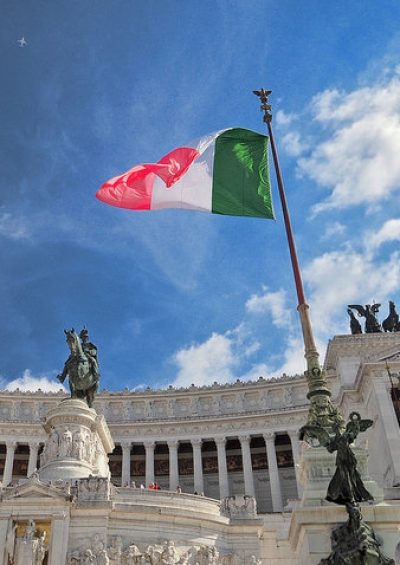After Italy: Experience Shows That Populists Can Get Real
Though the populists have triumphed in Italy, examples show that populists often abandon their most dangerous demands and their euro scepticism in the pursuit of power.

Credit: Dmitry Dzhus www.flickr.com
Takeaways
- The Italian election result is by far the worst populist upset in the Eurozone so far. It is akin to the rise of the Brexiteers in the UK and of Trump in the US.
- In Italy, the populists have now garnered a bigger share of the popular vote than they managed to do elsewhere except for Greece in 2015.
- Though the populists have triumphed in Italy, examples show that populists often abandon their most dangerous demands and their euro scepticism in the pursuit of power.
- The real risk in Italy may not be whatever campaign themes the populists had, but their lack of experience. 5Stars’ governing of Rome has shown a remarkable capacity for incompetence.
The Italian election result is by far the worst populist upset in the Eurozone so far. It is somewhat akin to the rise of the Brexiteers in the United Kingdom and of Trump in the United States. But it is not the first such accident. So far, pro-European common sense has prevailed in all such cases in the Eurozone.
1. In Greece, left-wing Syriza won elections in January 2015, forming a coalition with an ultra-right party. A futile confrontation with creditors derailed Greece’s post-crisis upswing that had started in 2014 and triggered massive capital flight that forced the country to close its banks in July 2015.
While then-finance minister Yanis Varoufakis secretly prepared a plan to ditch the euro, prime minister Alexis Tsipras backed down at the last minute. Having had to ask official creditors for a new bailout, a chastened Tsipras has since recast himself and his Syriza party in a more traditional pro-European centre-left mould.
2. In Finland, the anti-euro “True Finns” (or just “The Finns”) entered government as a junior coalition partner with 38 out of 200 parliamentary seats in 2015. Not much has been heard of them on the European level thereafter.
The party split in 2017 with the moderate wing (now called “Blue Reform”) staying in government. While the radical wing still advocates a Finnish euro exit (“Fixit”), it has lost popular support.
3. In Portugal, the Socialist Antonio Costa forged an alliance with the Greens and two left-wing anti-EU parties in 2015. The left-wingers have loyally supported the pro-European Costa ever since. Maintaining a tight fiscal policy, Costa has presided over Portugal’s remarkable recovery from the euro crisis for which the prior conservative government had laid the foundation with serious structural reforms.
4. In Austria, the right-wing FPÖ turned increasingly euro-sceptic in the wake of the euro crisis. In early 2016, the party still called for an Austrian euro referendum. But to broaden its appeal in the presidential elections of 2017, the FPÖ quietly dropped that demand. Having narrowly lost the presidential vote, the FPÖ garnered 20.5% of the popular vote in the parliamentary election of 2017.
Upon entering into a coalition as junior partner with the conservative ÖVP, the FPÖ abandoned all remnants of euro-scepticism. Austria’s president Alexander van der Bellen had made that a precondition for giving his assent to the coalition. Caring more about power and office than ideology, the FPÖ accepted that without complaint.
President Sergio Mattarella’s role
In Italy, president Sergio Mattarella may now play a similar role, asking the 5Stars and/or Lega for clear reassurances on EU and euro issues before giving a mandate to a politician to form a coalition that would include one of these two radical parties.
As regards Italy, the populists have now garnered a bigger share of the popular vote than they managed to do elsewhere except for Greece in 2015.
Nonetheless, the examples show that, in the pursuit of power, populists often abandon their most dangerous demands and drop their euro scepticism.
We may now see the same in Italy. The real risk in Italy may not be whatever campaign themes the populists had, but their lack of experience. In governing the city of Rome since 2016, the 5Stars have already shown a remarkable capacity for incompetence.



























